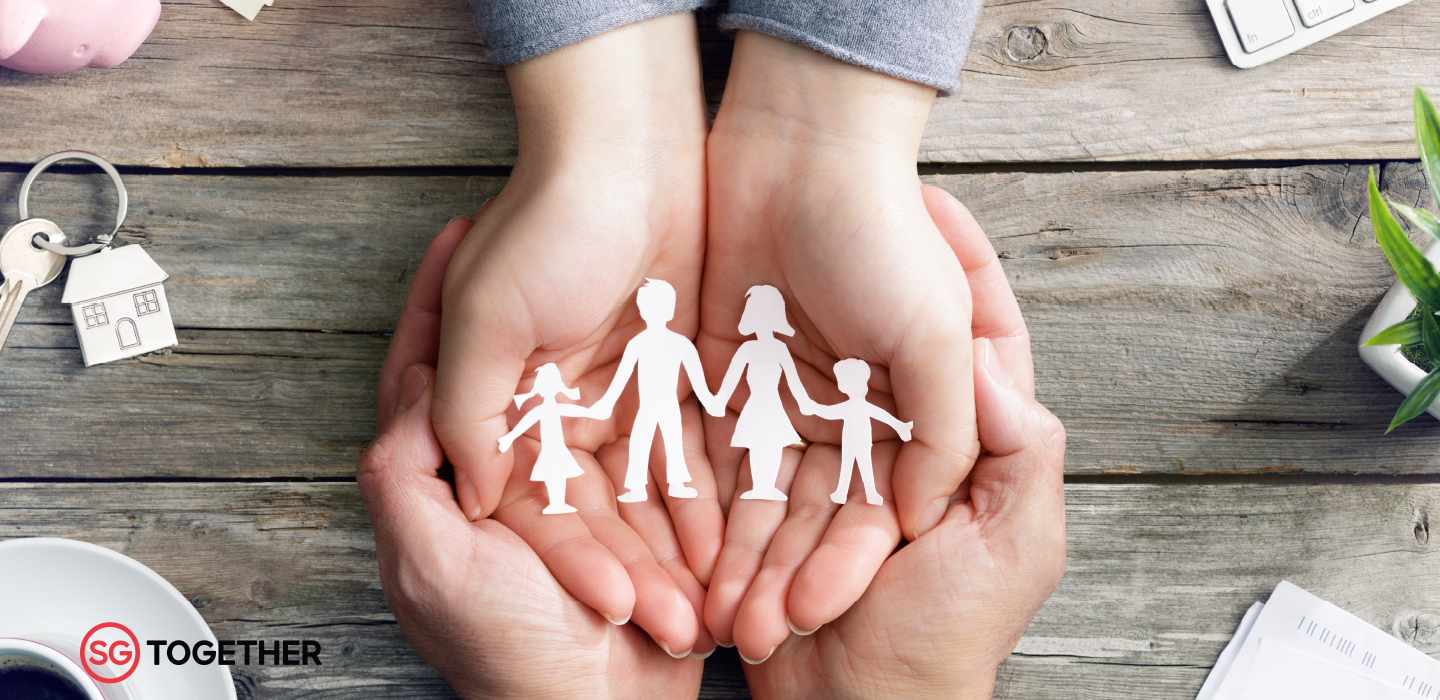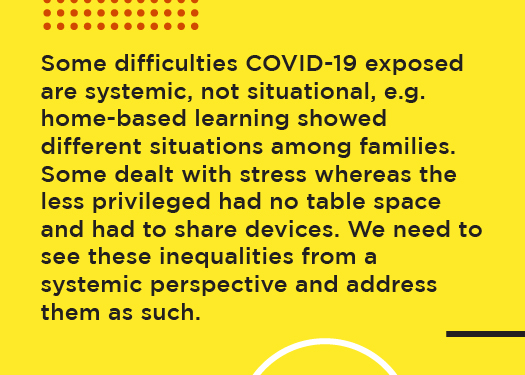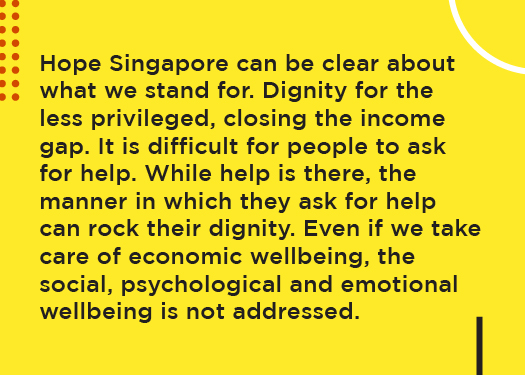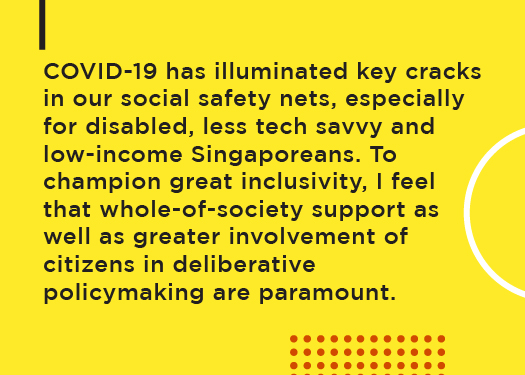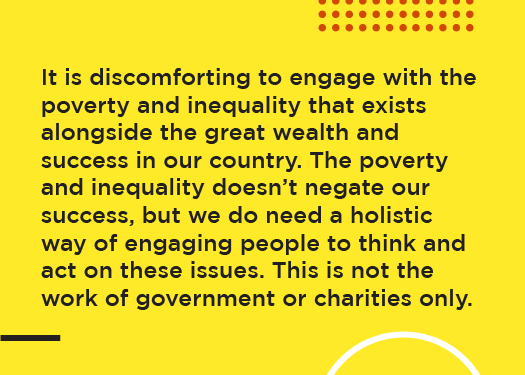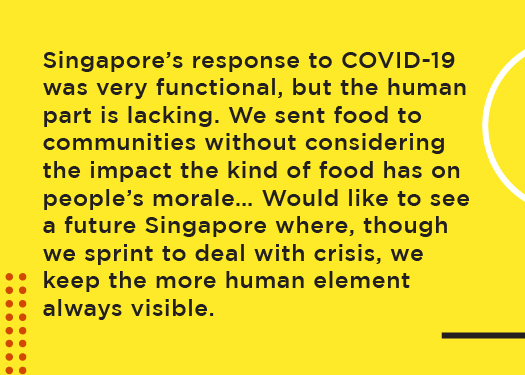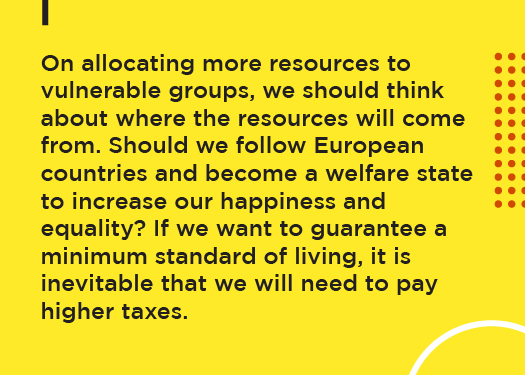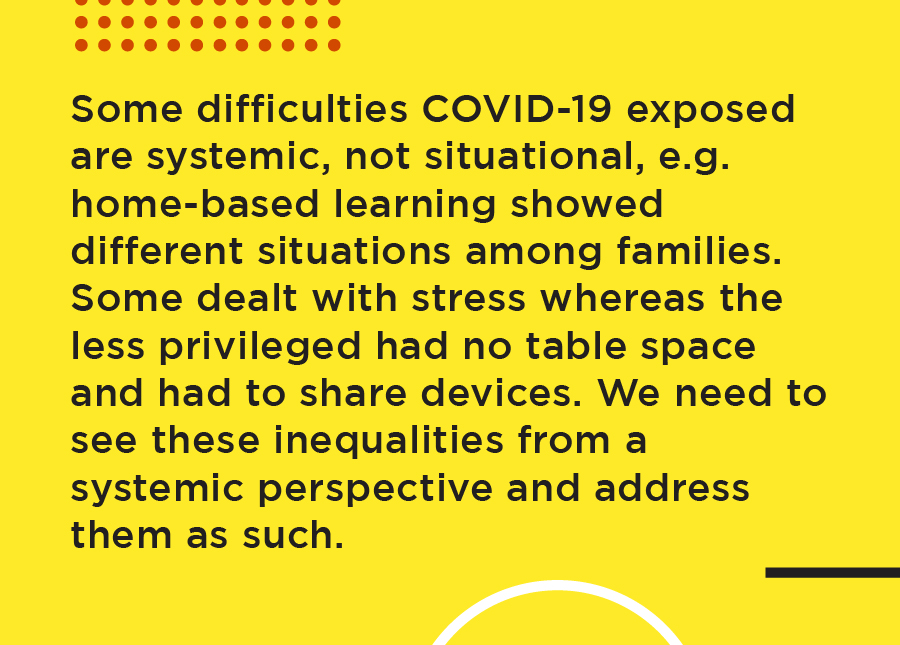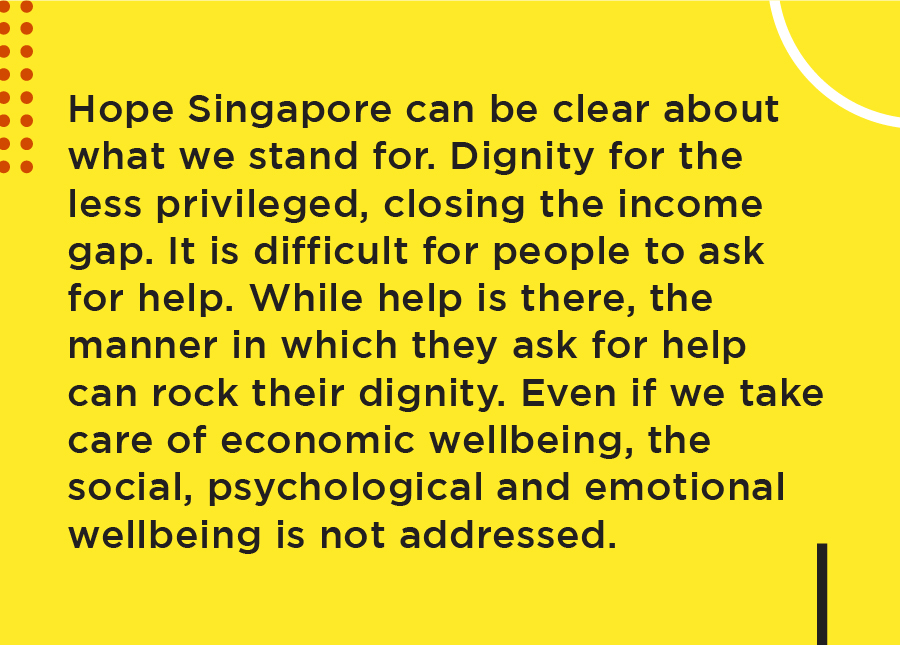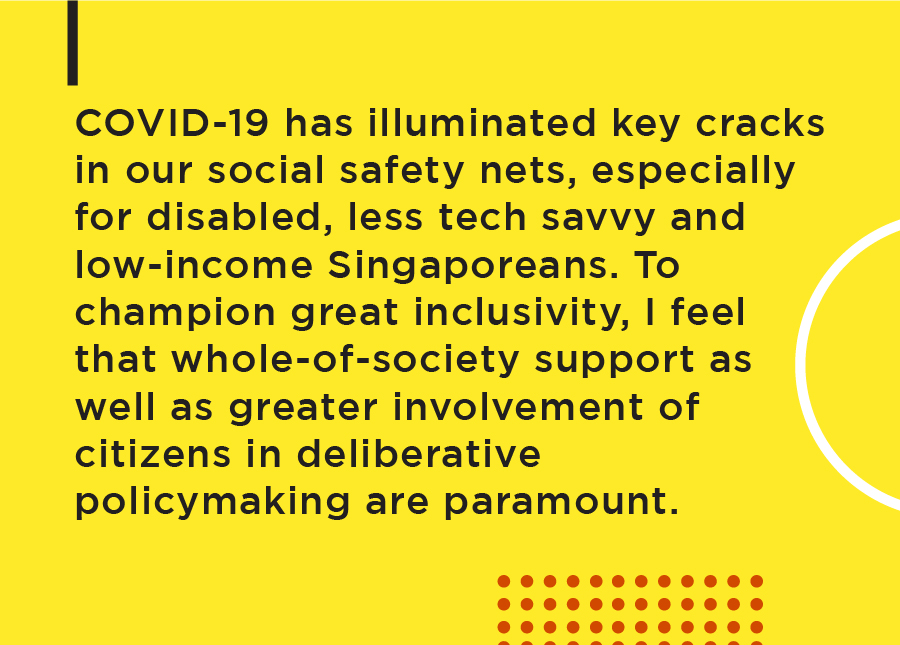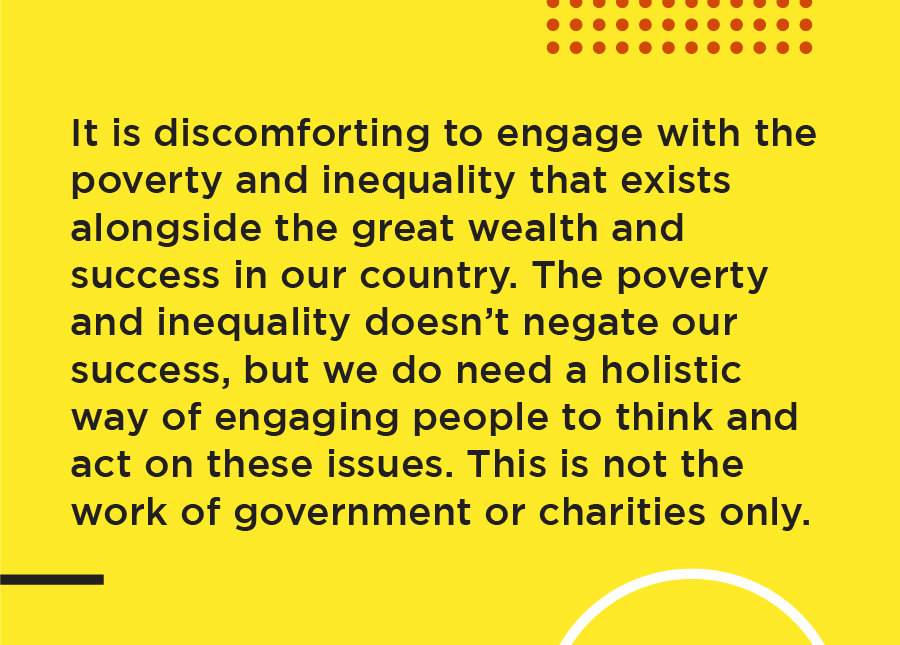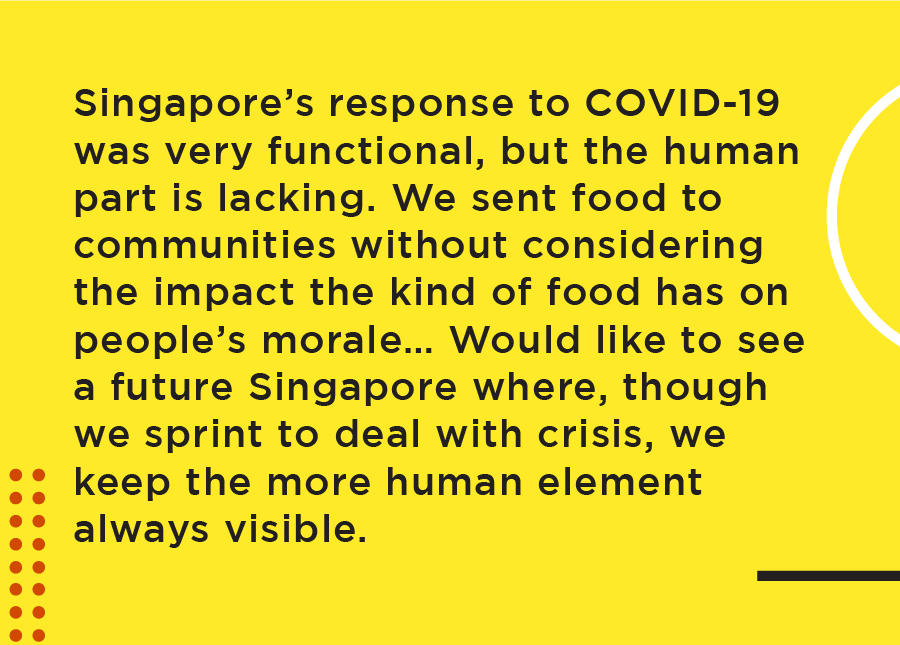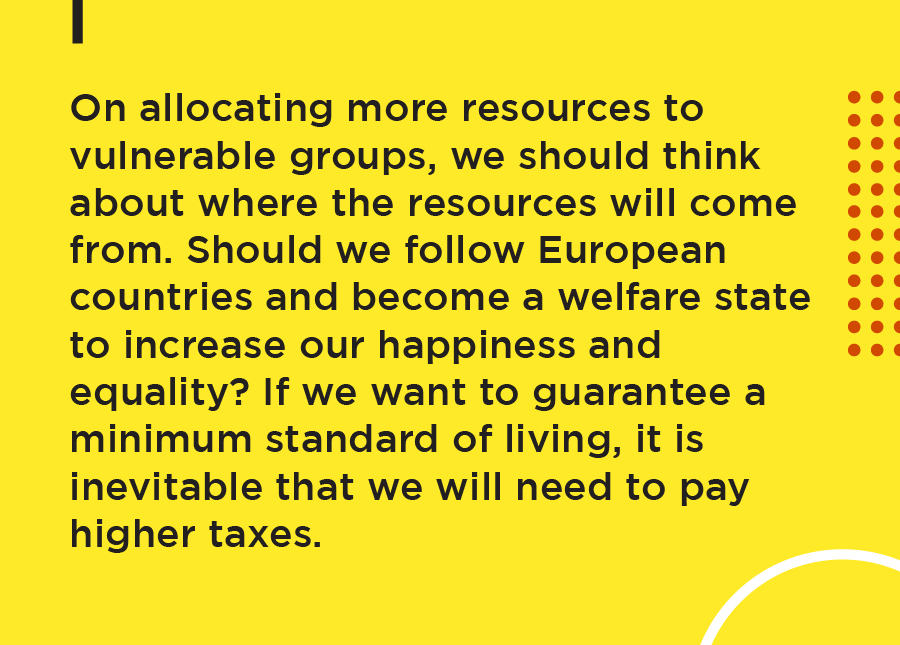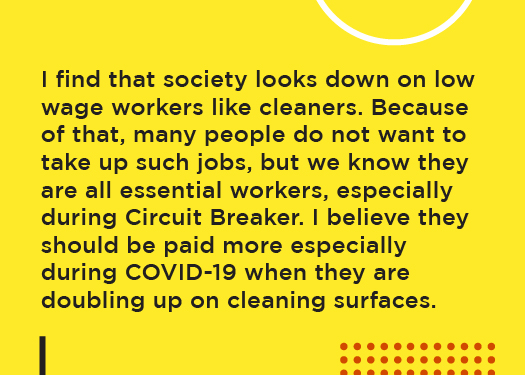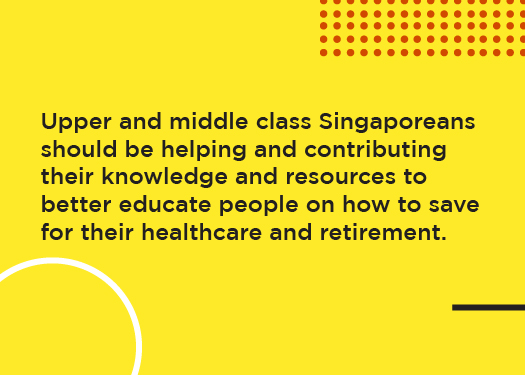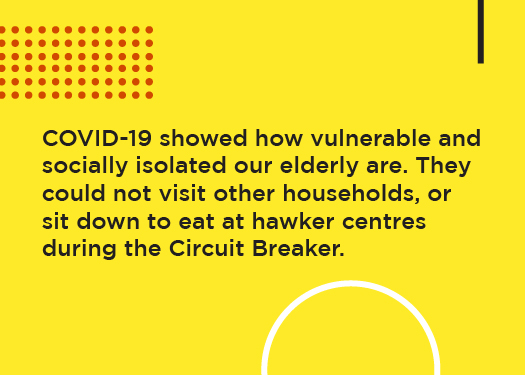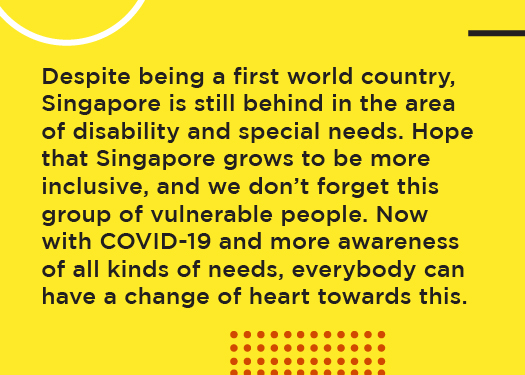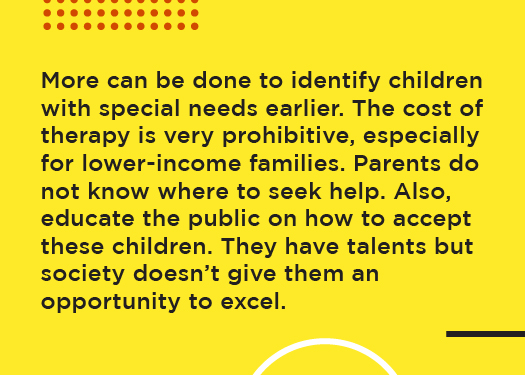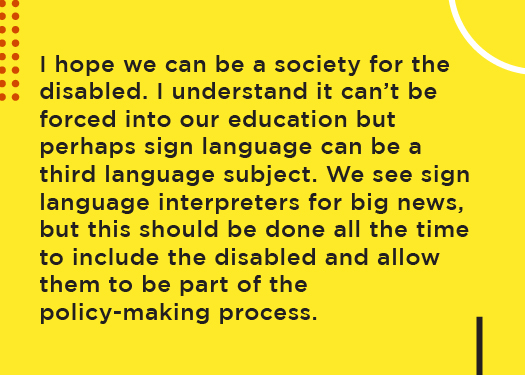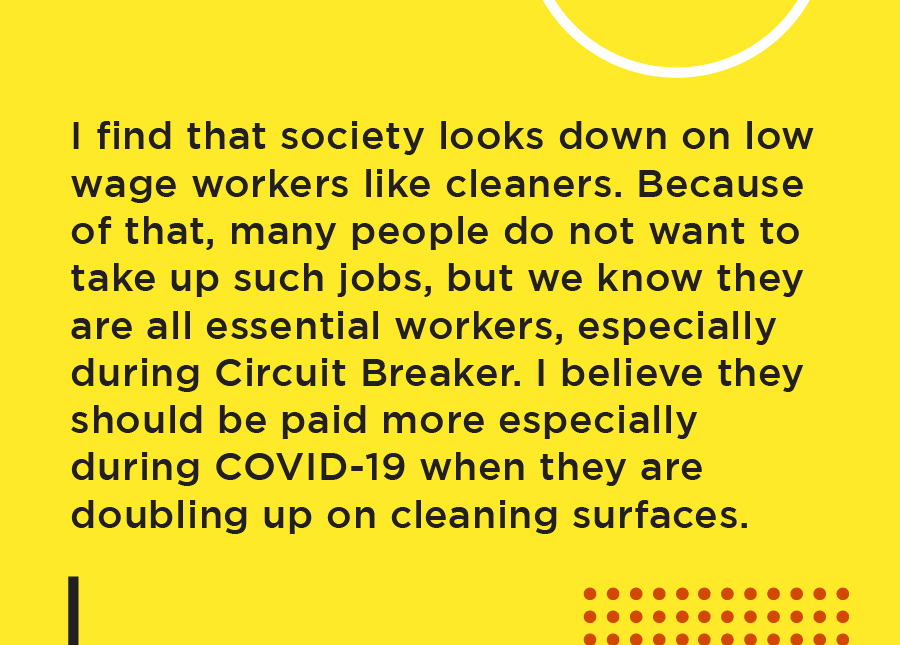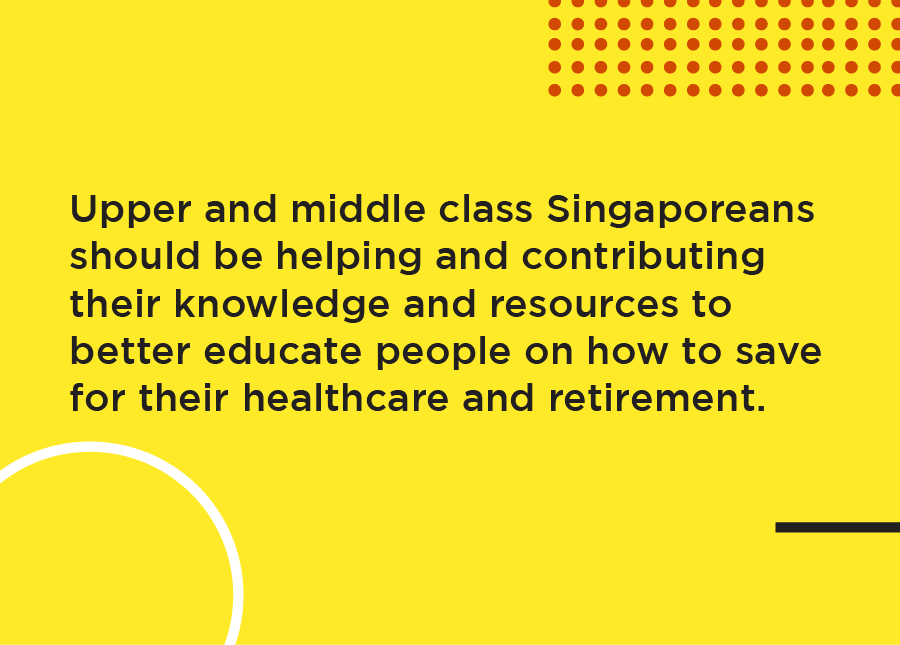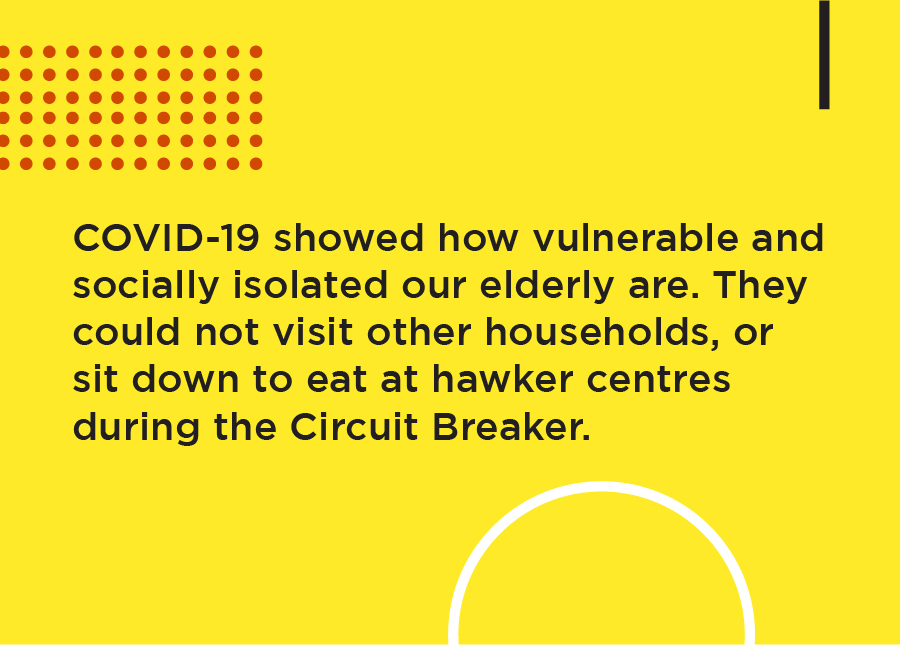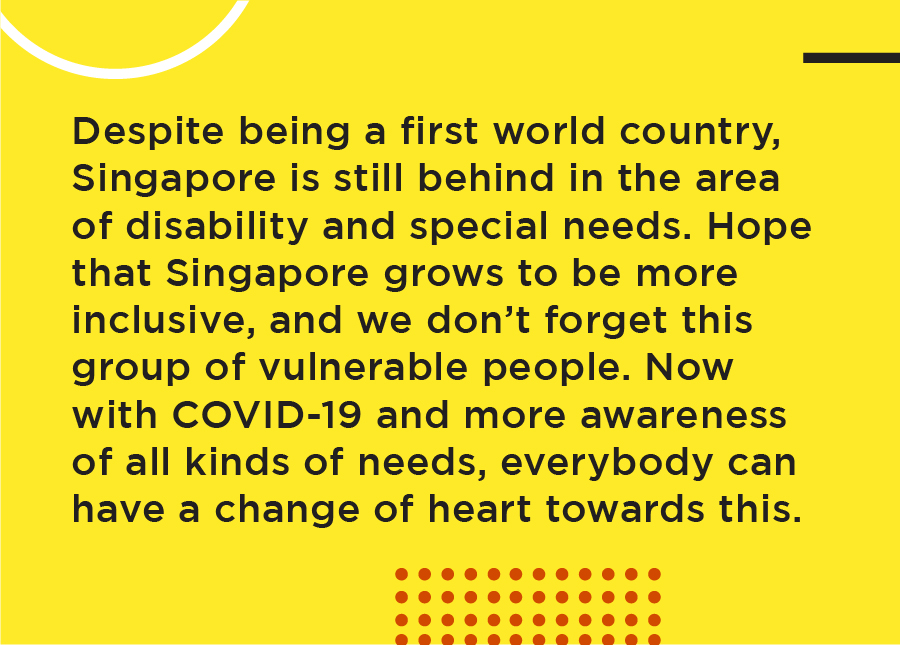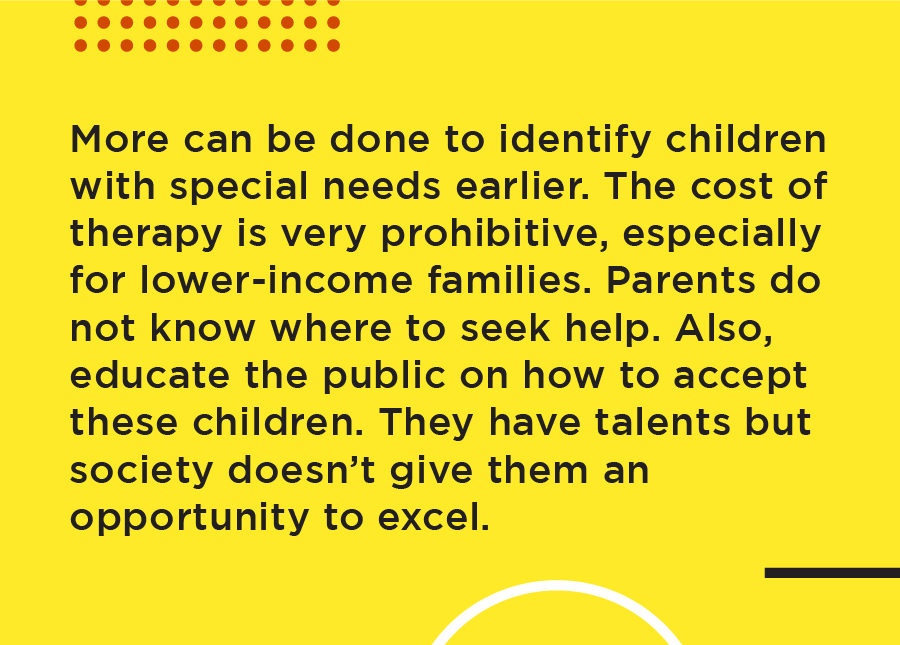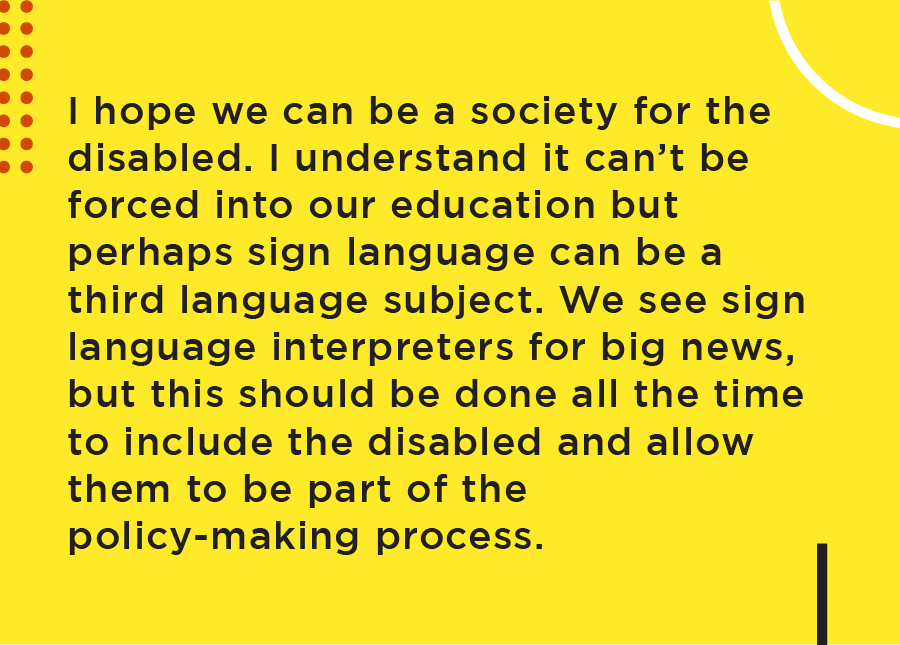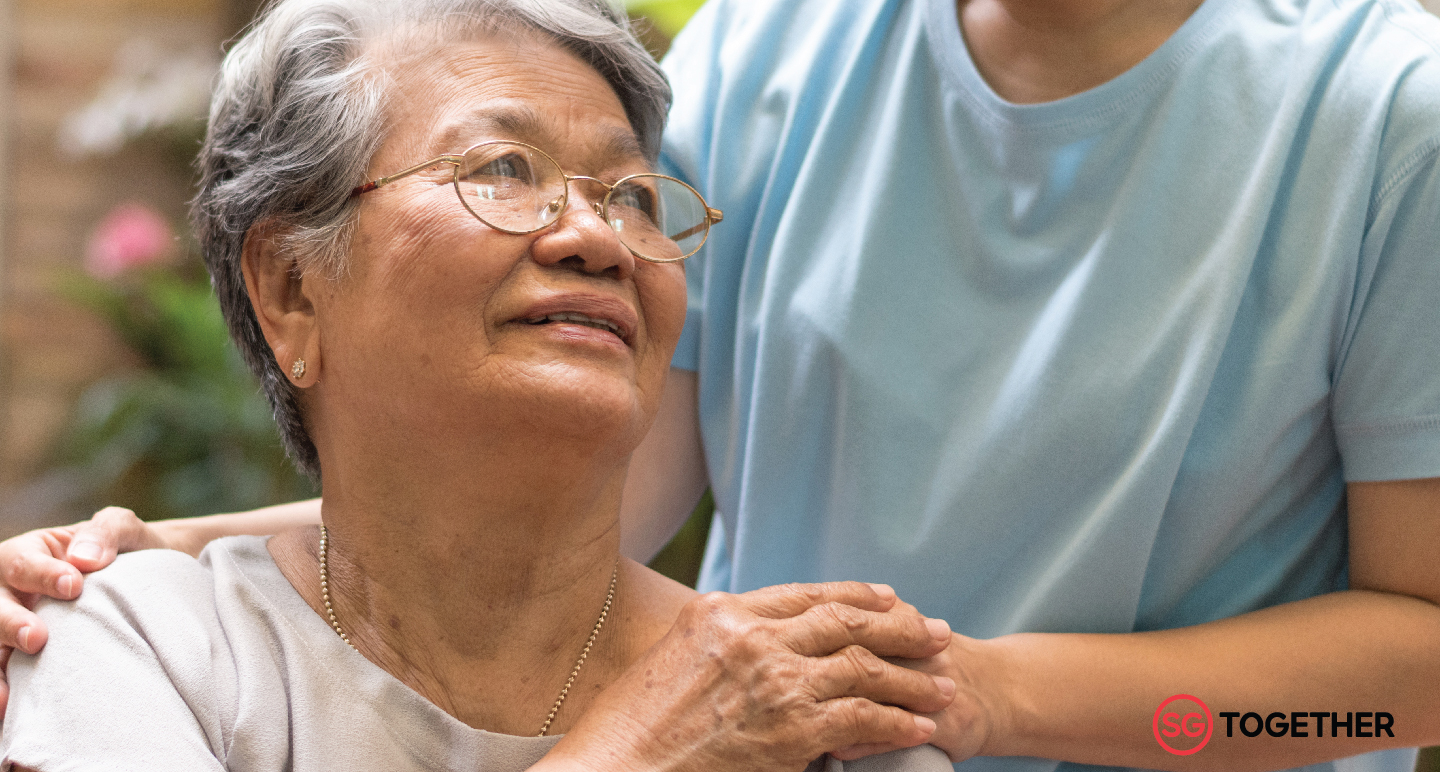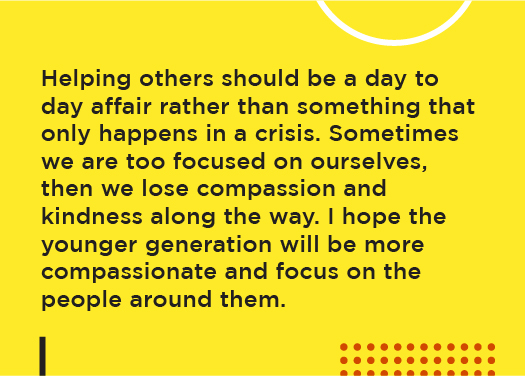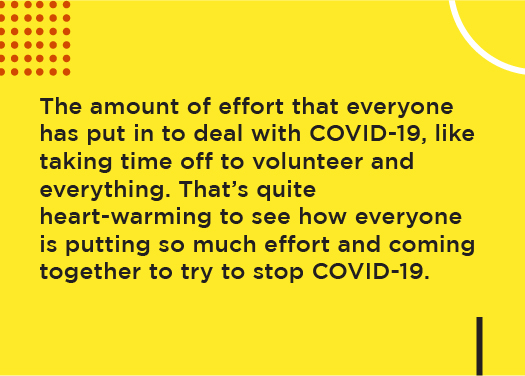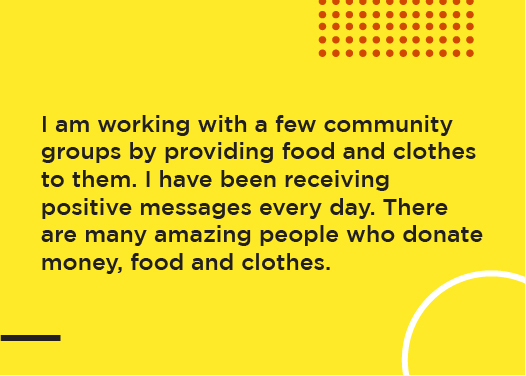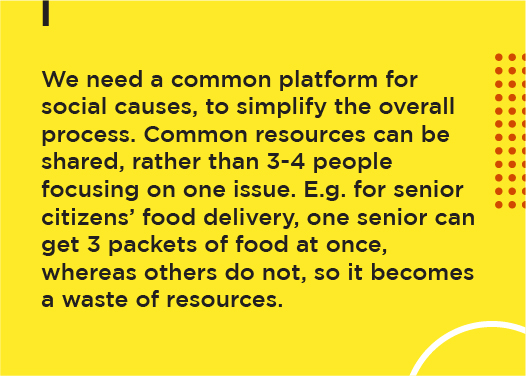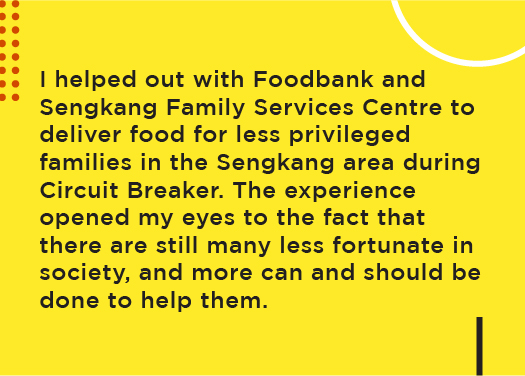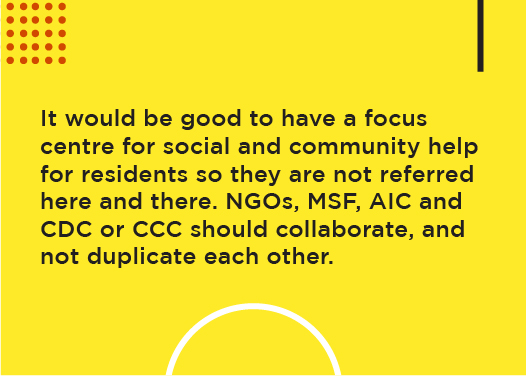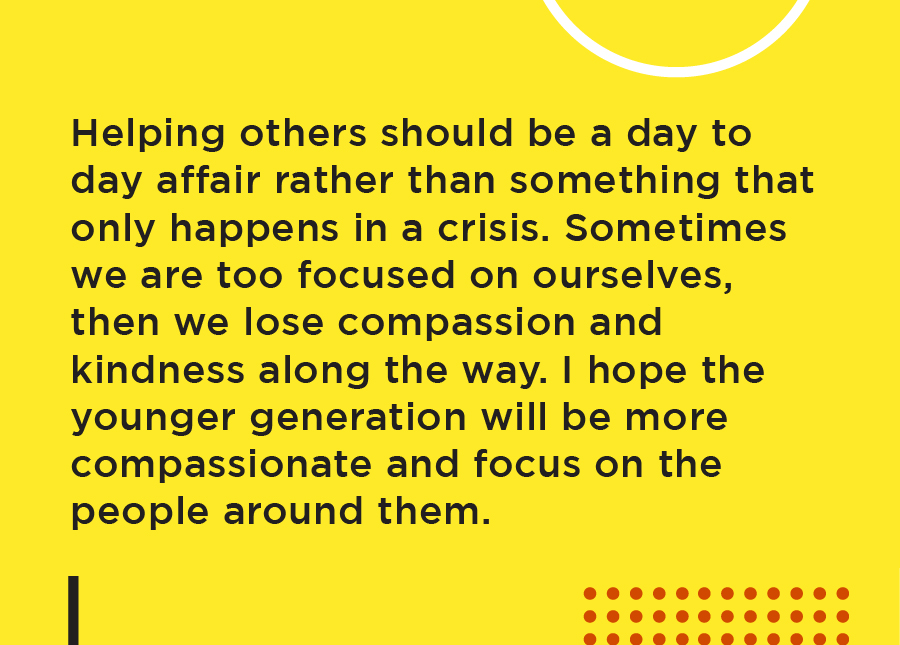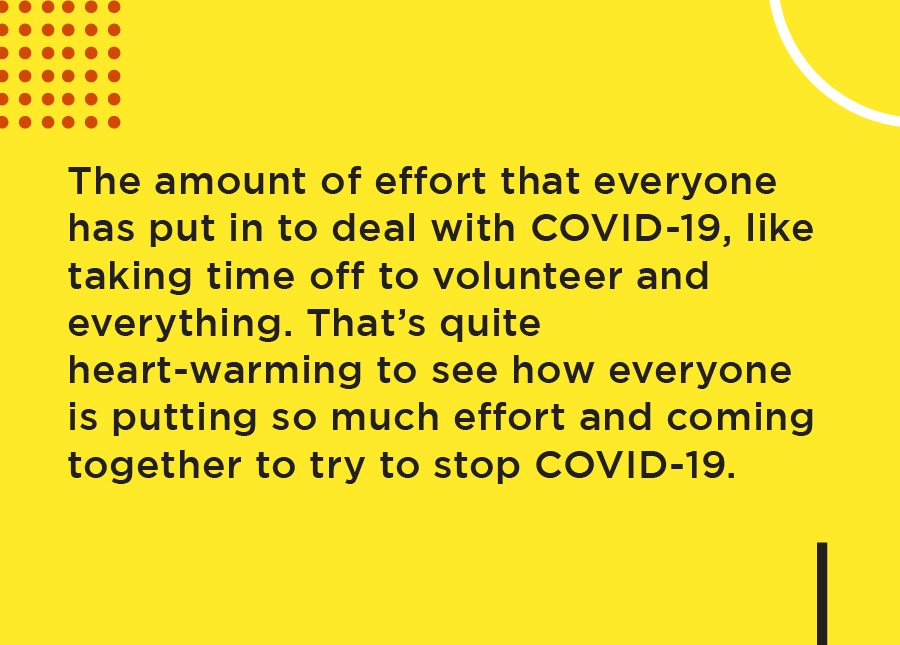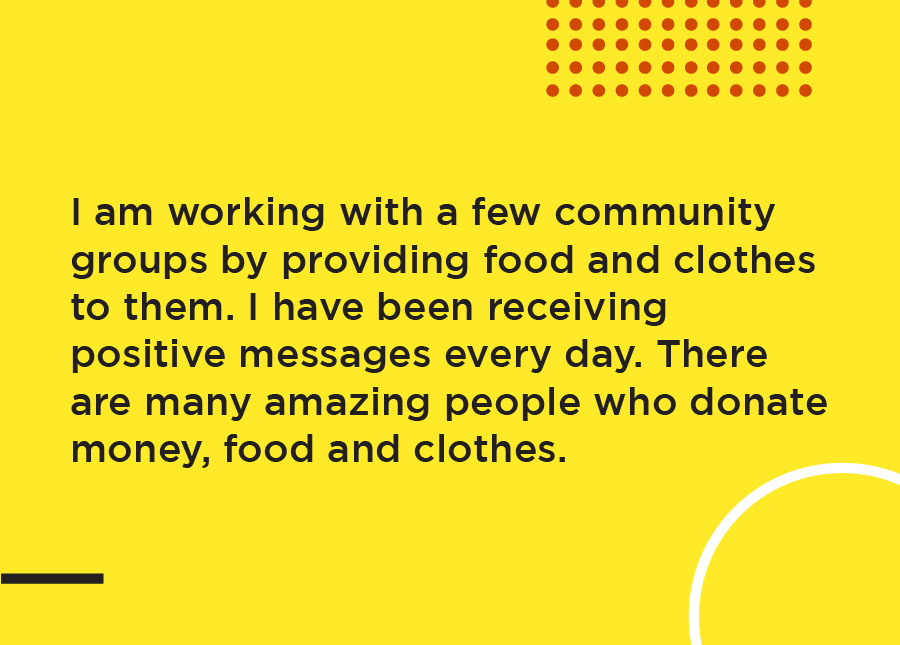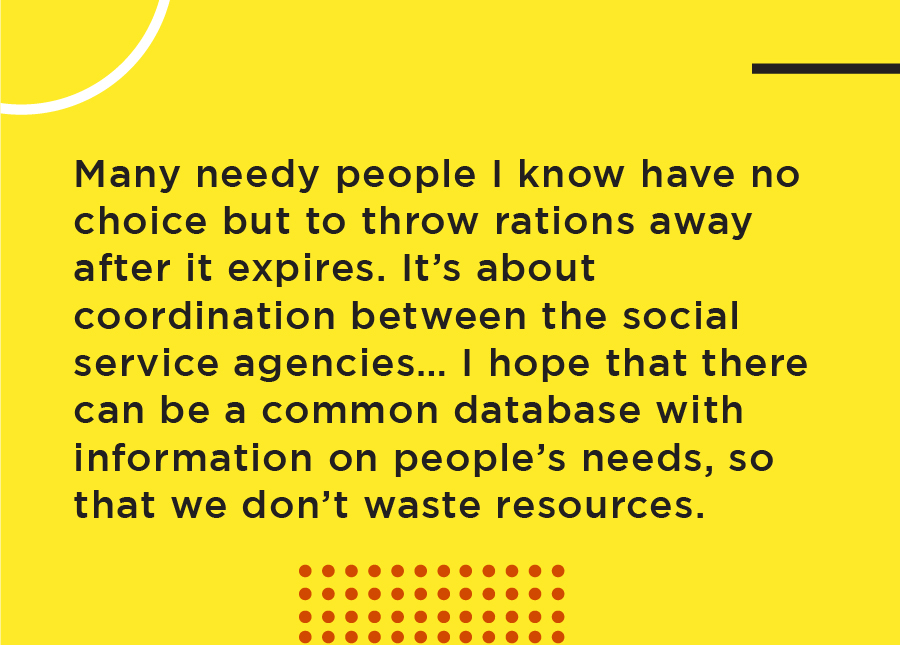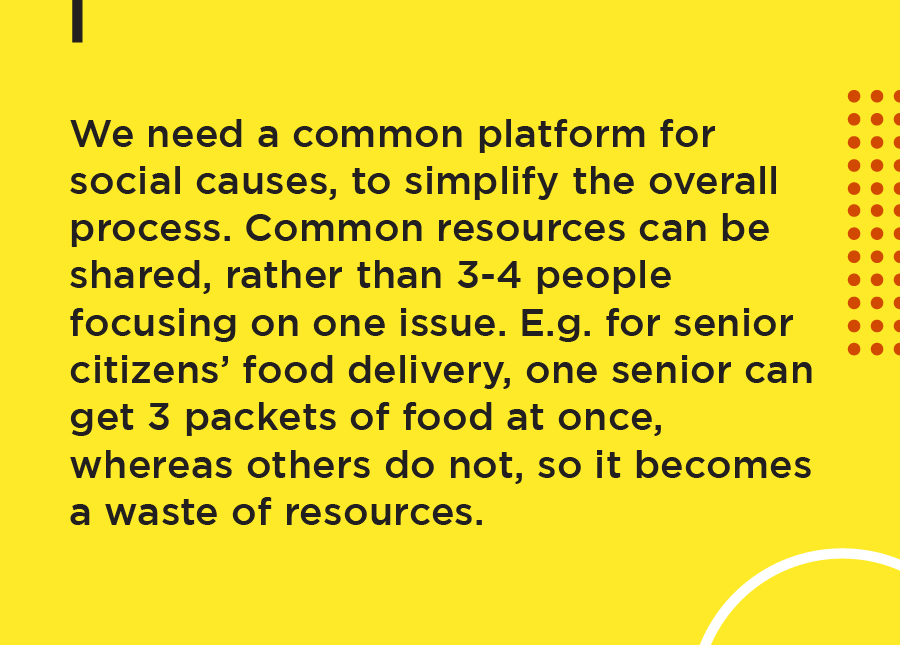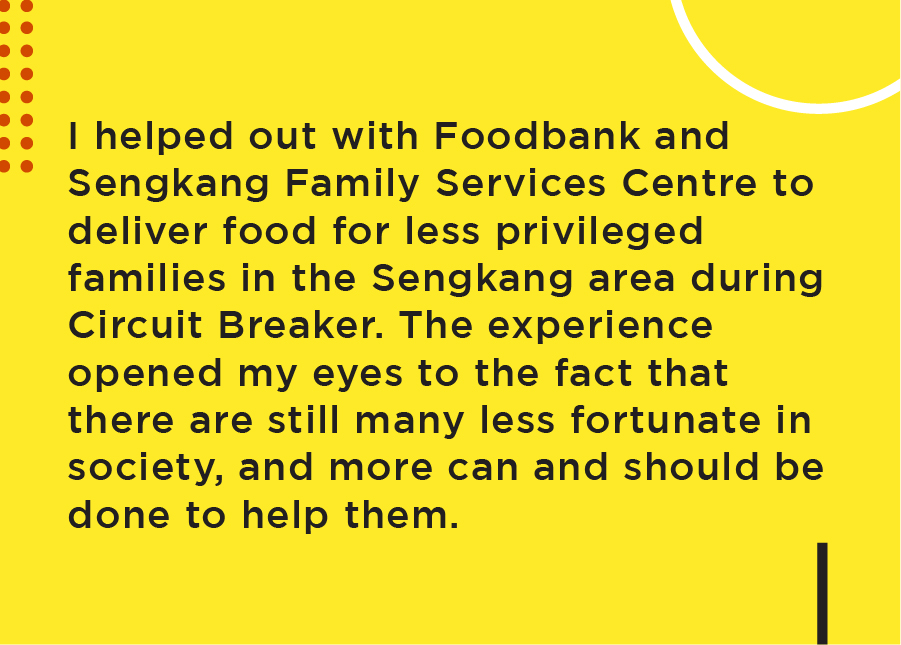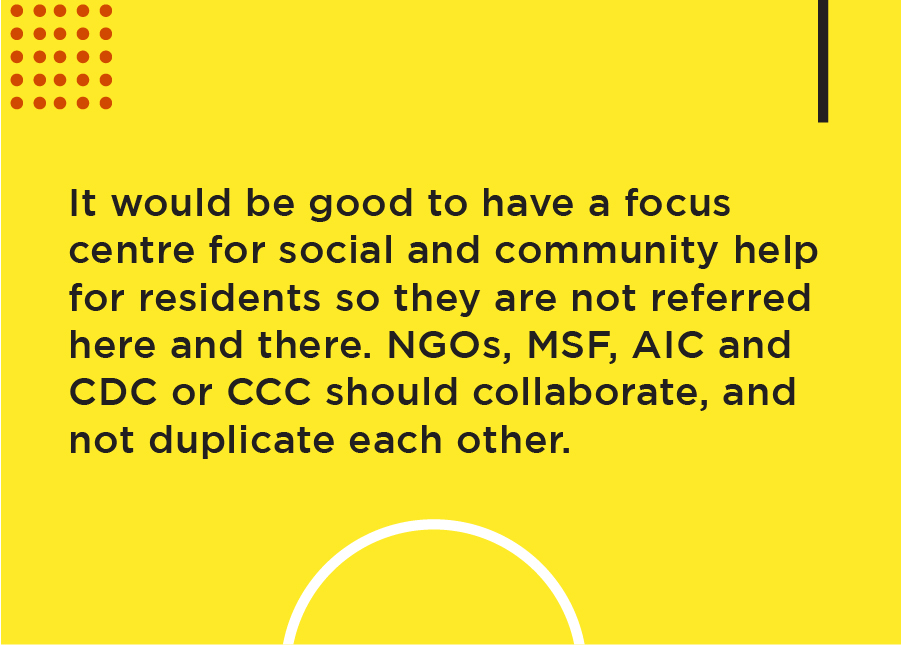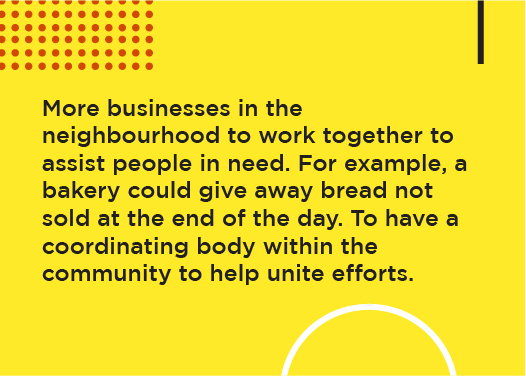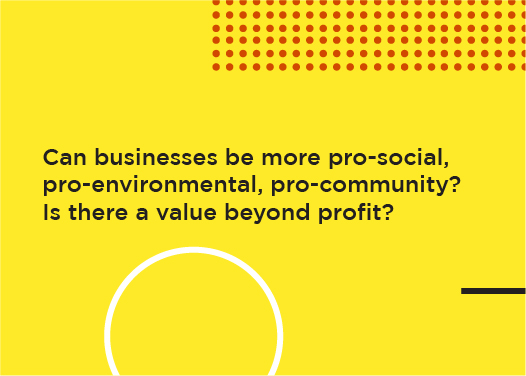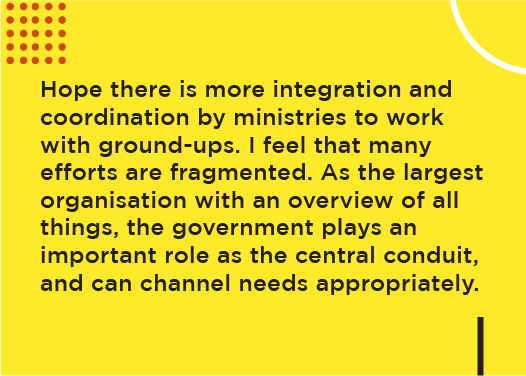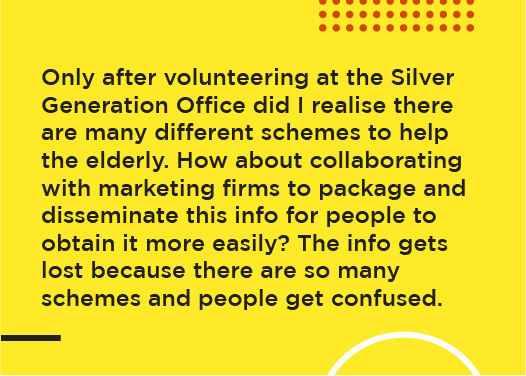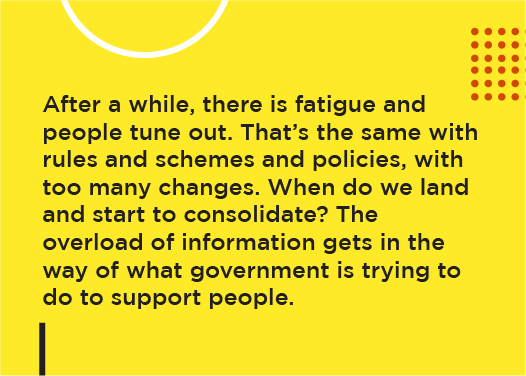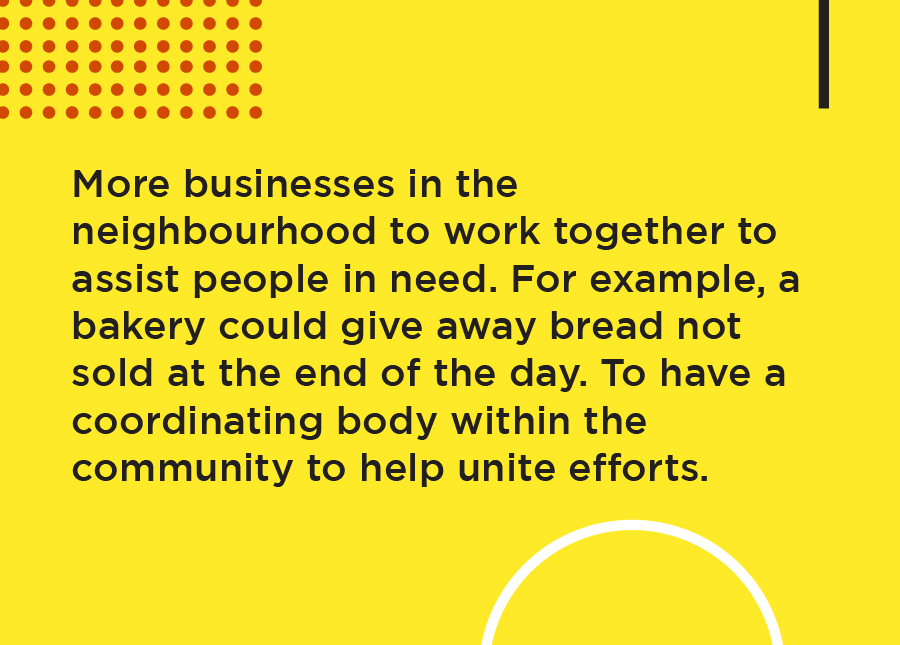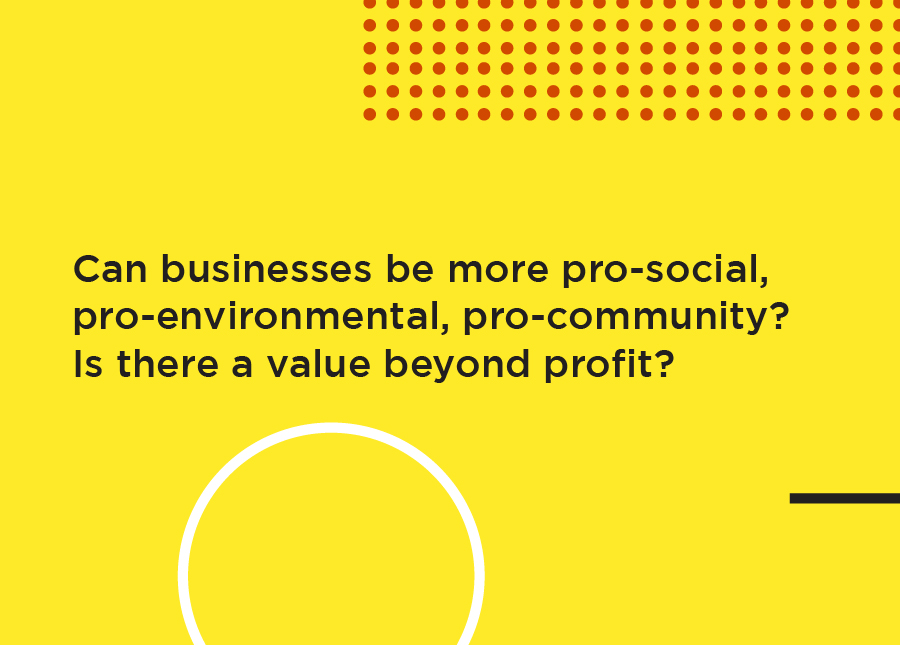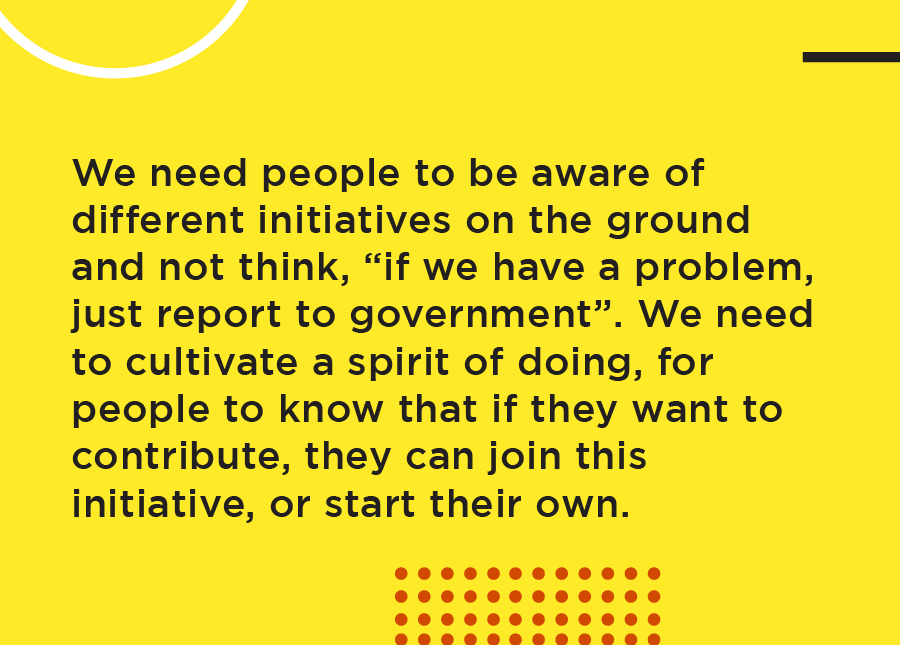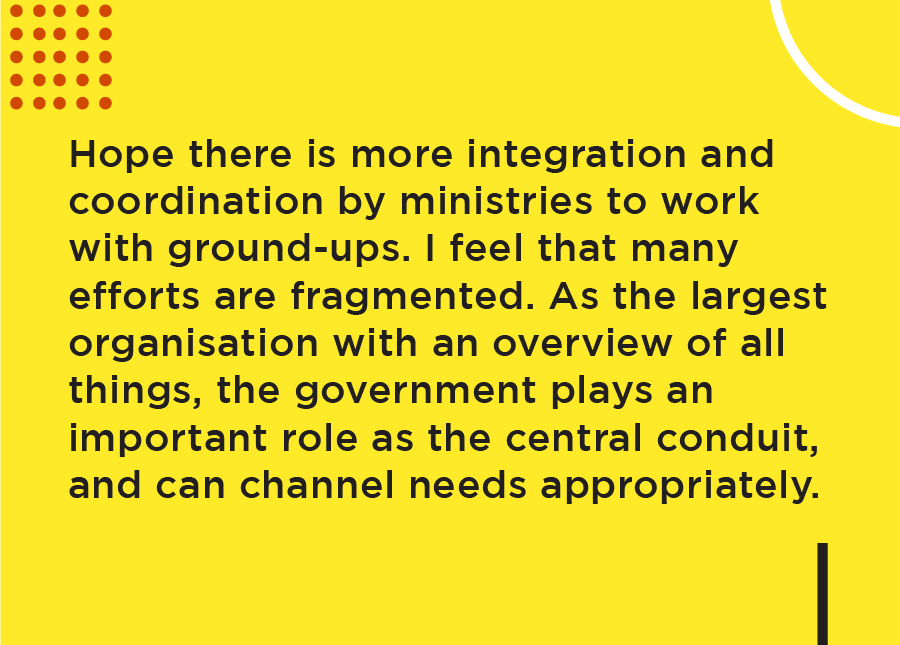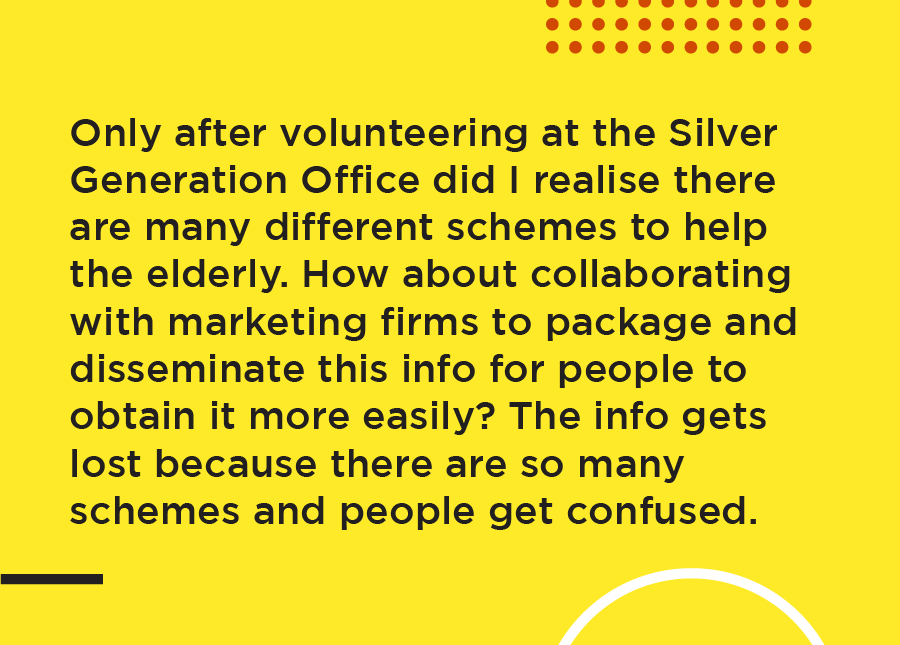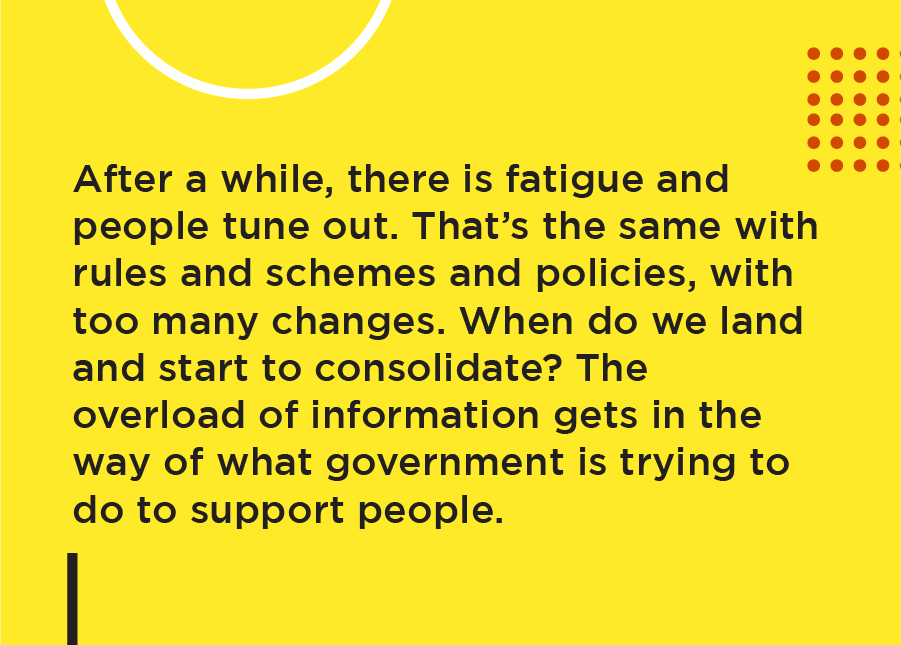Dignity of the less privileged

We feel strongly about making Singapore a fair and just society that cares about the dignity of the less privileged. It is important that we respect each other and care about each person’s access to opportunities. We hope that our society becomes more compassionate and understanding, especially towards the vulnerable and disadvantaged. We feel a strong sense of responsibility to help one another and care for the community.
We thus want to see a narrowing of the income gap in Singapore. COVID-19 exposed deeper systemic inequalities, which may be made worse by uneven access to technology. We are concerned that many lower-income families struggled as they did not have environments at home conducive to studying or working. Some of us suggest that we define the ‘basic needs’ that all Singaporeans, including underprivileged groups, should have. Today, this may include access to the internet and childcare. We also need to improve access to assistance for underprivileged groups. At the same time, some of us point out that to assure a minimum standard of living for everyone, we would need to contribute more to fund this. We would also need to pay higher prices for certain goods and services, so that lower-wage workers can be paid more fairly.
Quotes
Protection of vulnerable segments
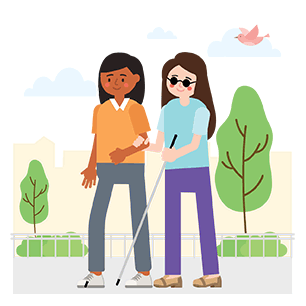
We want to protect and care for the vulnerable. COVID-19 made many more of us realise that there are many vulnerable groups in our midst, and that each of us needs to do our part to help and support these groups. For example, neighbours are important as a first line of assistance.
We want to offer better financial and legal support for lower-income earners who live from hand to mouth. This includes new groups of needy people that have been affected by COVID-19. We should pay our lower-wage workers better – many of them do essential jobs. Our youth feel strongly about having more support for lower-income families by strengthening their technical and soft skills, and ensuring they are aware of government support schemes such as the Progressive Wage Model and Workfare schemes. We should also help Singapore’s youth-at-risk by providing them with mentorship.
COVID-19 revealed how vulnerable and socially isolated our seniors can be. Those without access to the internet and technology find it difficult to voice their concerns. Others may be taken advantage of by employers who do not pass on benefits to them. As a society, we need to be kinder and more considerate towards our seniors and make ageing more fulfilling.
We have a long way to go in being inclusive towards persons with disabilities. We are not sensitive enough to discriminatory remarks and practices towards persons with disabilities, and need to raise awareness of special needs. We want workplaces and educational institutions to be more inclusive. We can use sign language at official platforms or offer it as an elective in schools. We also believe that caregivers of special needs children should be given greater recognition and support, such as through grants and subsidies, and informal support networks in the community.
Quotes
Support for giving and volunteerism
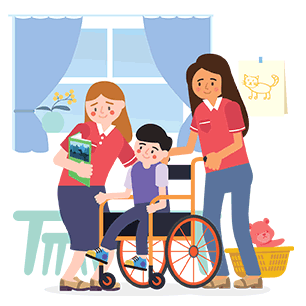
We hope the spirit of giving and volunteering that we saw during COVID-19 will continue after the crisis is over. We are happy to see people stepping up to help one another, especially the most vulnerable and needy among us. However, we can do more to donate our time, money and resources to those in need, including through small acts of kindness. Many of us feel that we should volunteer actively despite our busy schedules, as volunteerism builds kindness and helps us empathise with each other’s problems. We could even have a national volunteering day or encourage our youth to volunteer overseas in the region to build their compassion and resilience. In particular, seniors amongst us feel that volunteers are an important bridge between government and people, as they educate stay-at-home seniors on social policies, and support and flag out their needs to social service and government agencies.
Some of us who have worked with social service agencies feel that local volunteering efforts can be better coordinated and publicised. The databases could also be integrated to avoid duplication of efforts, or poor use of resources and volunteers. Some of our seniors also suggest raising awareness about social support schemes and volunteering needs through social media, to encourage the younger generation to take up volunteering.
Quotes

The government can empower more people to contribute to tackling these issues, by supporting those who want to start new ground-up initiatives in their communities, and smaller social service agencies who have limited resources. Some of us who have applied for these types of grants feel that the process could be made simpler. Also, the criteria for these grants could be tweaked to promote medium-term community development efforts, not just ad-hoc charity work. Many of us feel that it would be useful to have a one-stop portal where people could find out information on grants as well as assistance schemes.
Some of us feel that businesses can play an important role in helping the vulnerable and underprivileged. For example, they could pay their lower-wage workers more. Some of us are disappointed to hear that there were landlords unwilling to pass on property tax rebates to retailers and businesses who neglected the working conditions and safety of their foreign workers.

